On Course for Search and Rescue
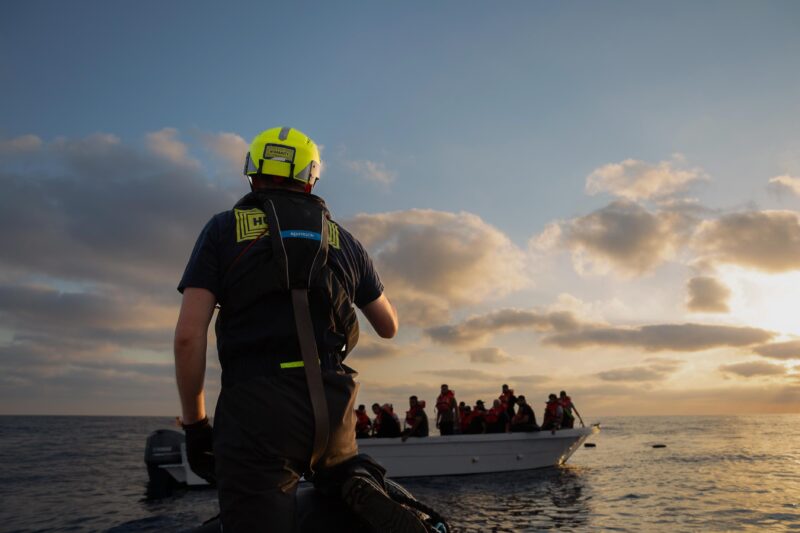
10 arguments for search and rescue
Here are 10 reasons why civil search and rescue in the Central Mediterranean is important. You can use them to engage in interesting discussions and counter right-wing propaganda and misinformation.

Because search and rescue is a duty
There is a clear legal framework for rescuing people in distress at sea. Every captain and every coastal state are obliged to rescue people in distress at sea or coordinate rescue operations. Survivors must be brought to a safe place on land – regardless of their nationality, status, or the circumstances in which they find themselves. Maritime law is considered the oldest form of international law in the world. It is defined by international treaties such as the United Nations Convention on the Law of the Sea.

Because flight is an unavoidable reality
There have always been refugees and migrants. The reasons for this include war, persecution, displacement, poverty and the climate crisis. Almost two-thirds of all refugees worldwide are displaced within their own country; only 6.2% are located in Europe. In Germany, refugees make up just 3.2% of the total population. Europe has a moral and legal obligation to offer protection to people in need. They must not be left to drown on Europe’s doorstep.
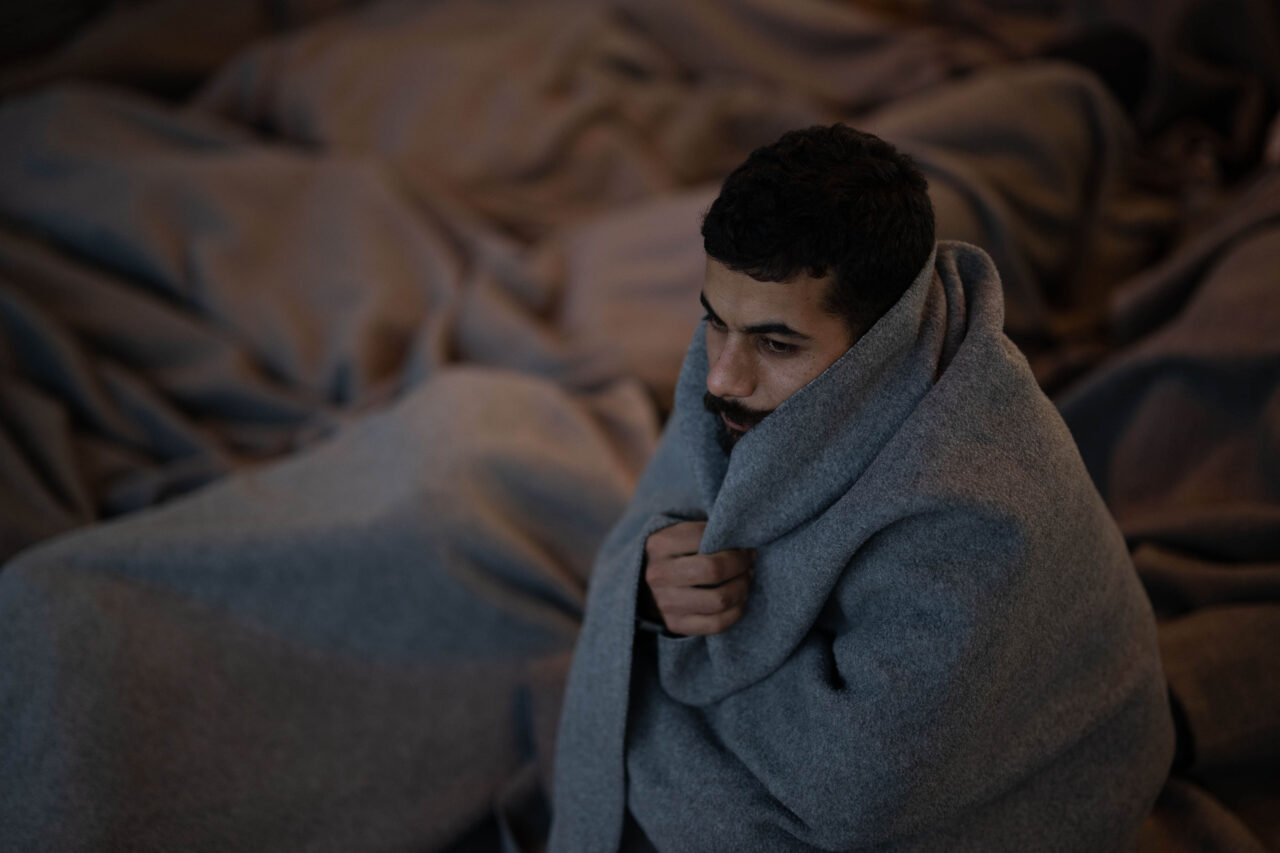
Because people will flee across the Mediterranean no matter what
Refugees who are detained in Libya or threatened in Tunisia have no choice but to flee across the Mediterranean. Returning to their countries of origin is rarely an option, so their only available path is to flee abroad. They flee across the Mediterranean regardless of whether search and rescue organisations are operating or not. The frequency of departures of refugee boats is dependent on weather conditions at sea and motivations for fleeing. A link between the presence of rescue ships and the number of departures is nonexistent and has been disproven by multiple independent scientific studies.
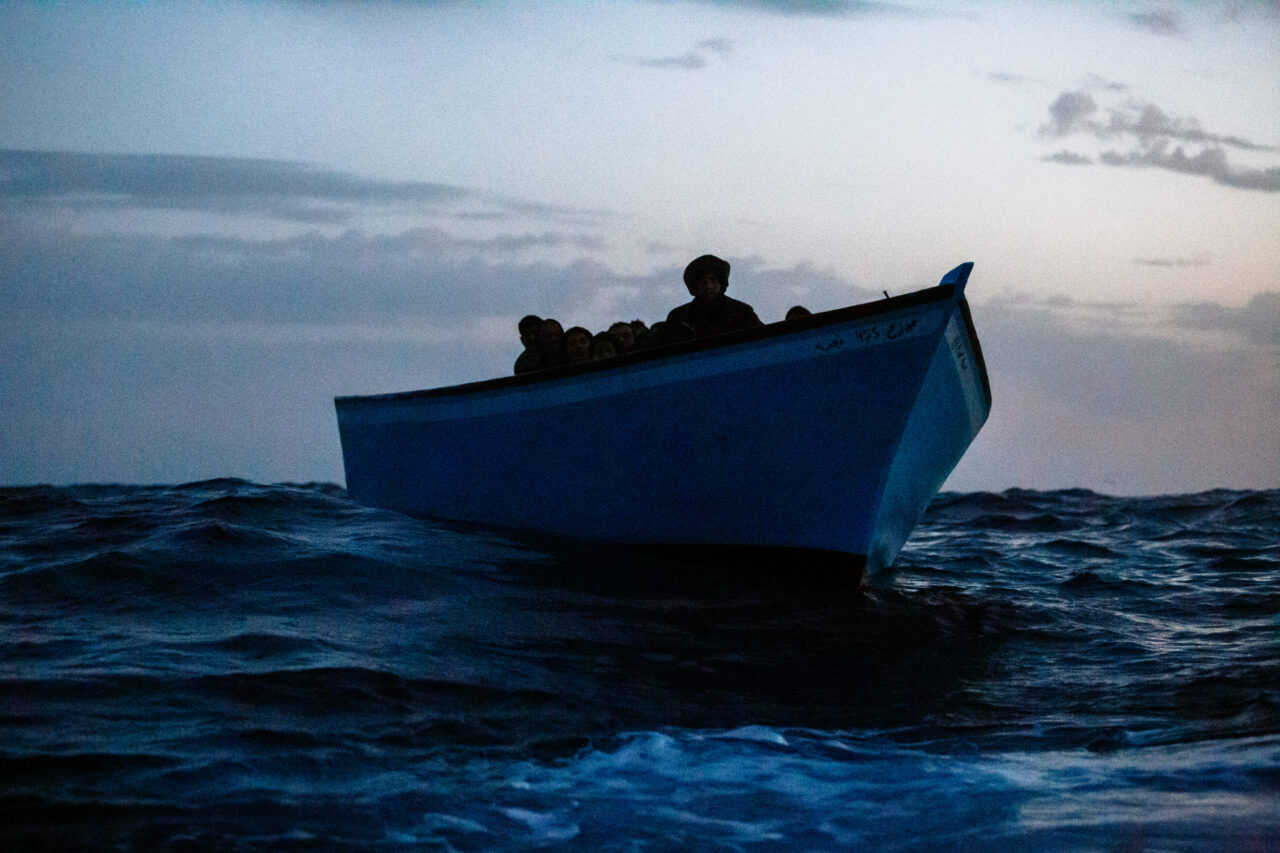
Because escape boats are in constant distress
People seeking protection from Libya or Tunisia are in distress the moment they leave the coast: they are forced to cross the Mediterranean on unsafe, overcrowded boats without suitable navigation or rescue equipment. They are completely at the mercy of meter-high waves and extremely dangerous weather conditions. The boats are at high risk of capsizing. There is a lack of food and fuel, and the seafarers are extremely susceptible to death by hunger or thirst, as well as burns resulting from petrol-saltwater mixtures within the boats.
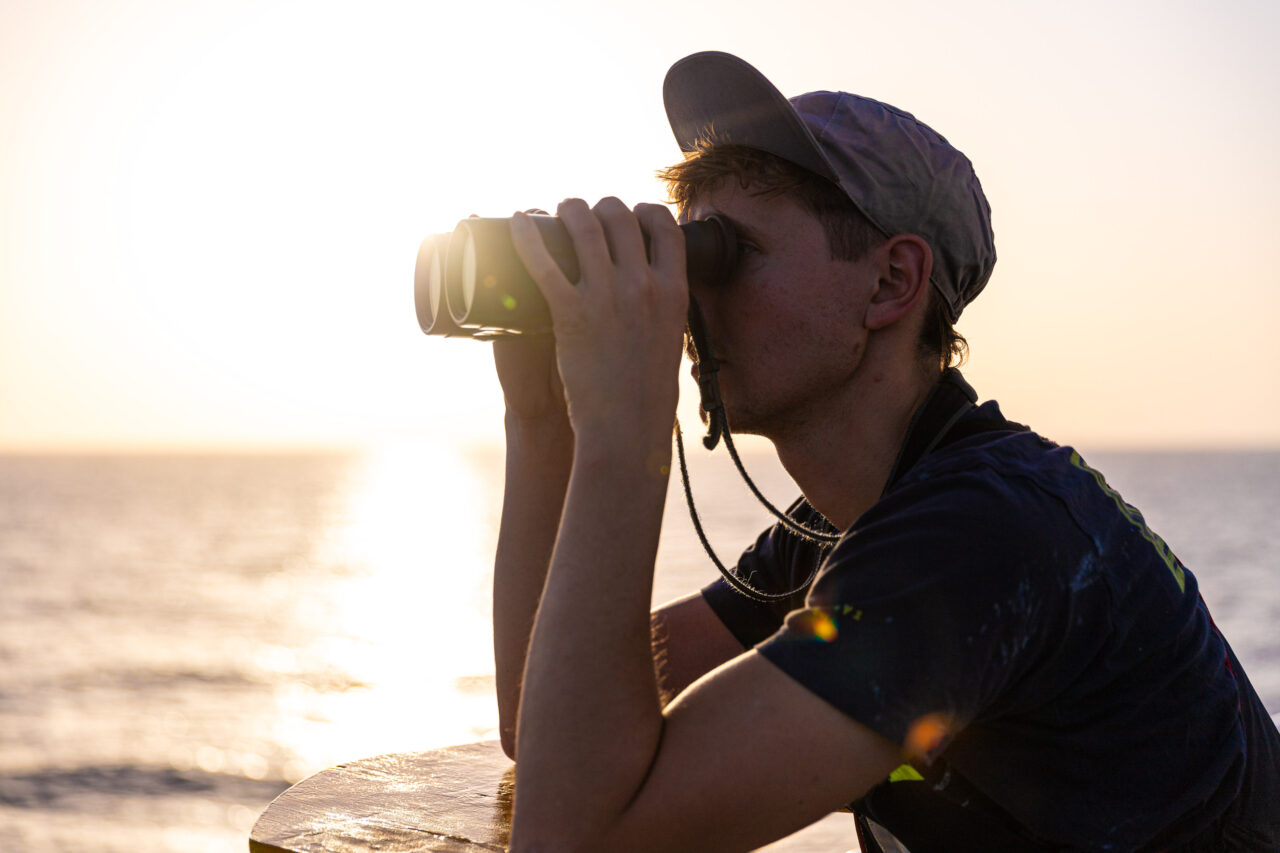
Because maritime rescue work is legal
Search and rescue organisations in the Mediterranean operate in international waters and in accordance with maritime law, in cooperation with relevant maritime authorities and other non-governmental actors. Cooperation with smugglers is categorically barred. Information about distress cases is obtained through searches using binoculars and radar detection, as well as via the Alarm Phone emergency hotline, reconnaissance aircrafts, and governmental agencies. This work is documented in detail, relevant authorities are informed in real time, and survivors are brought to a place of safety designated by these authorities.
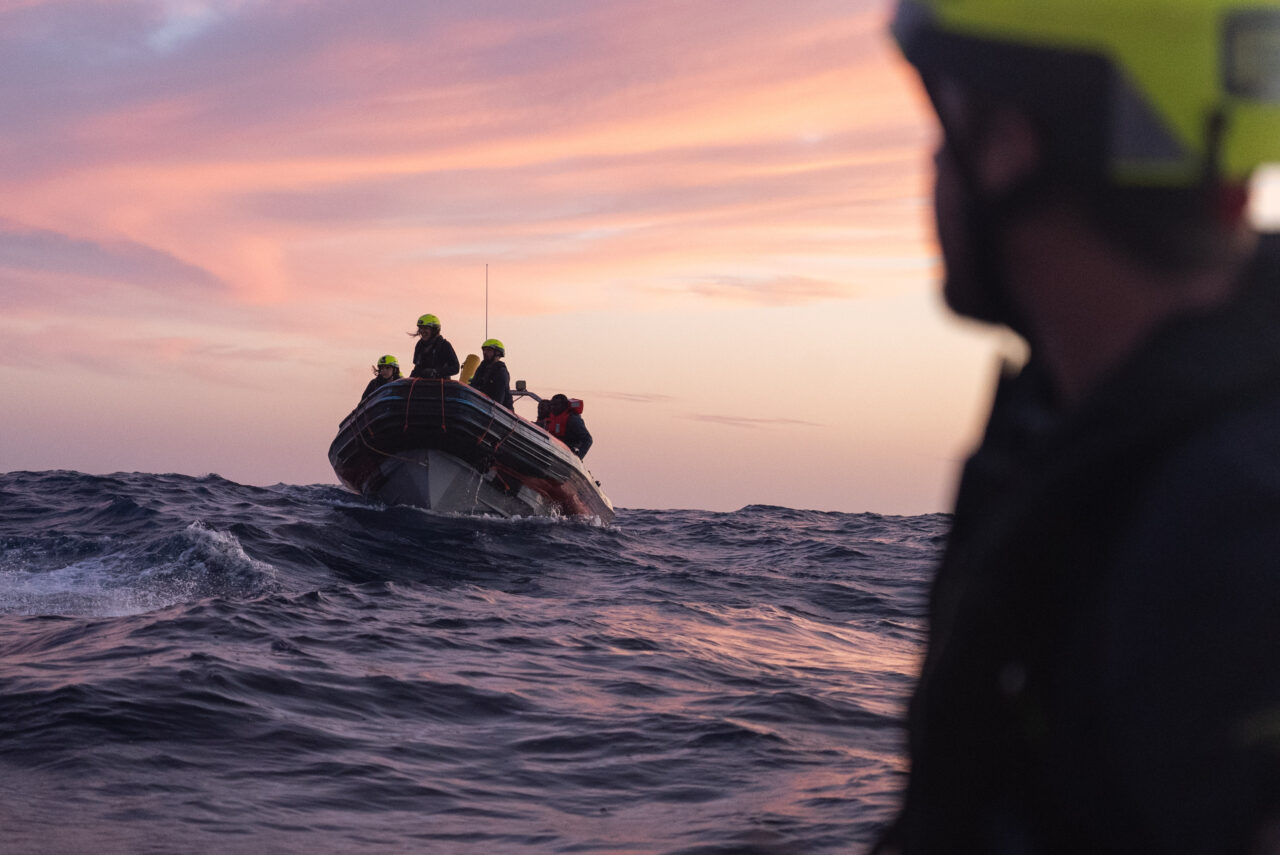
Because Libya and Tunisia are not safe places
People rescued from distress at sea must be taken to a nearby place of safety in accordance with international maritime law. This is clearly defined as a place where basic needs such as food, shelter and medical care are met, and the lives and safety of survivors are not threatened. Additionally, , in accordance with the non-refoulement principle enshrined in the Geneva Refugee Convention, people must never be returned to a country where they are fleeing life-threatening danger. The act of forcing people back to Libya and Tunisia, as the Tunisian and so-called Libyan Coast Guards are doing, is a violation of international maritime and human rights law, as it puts fleeing individuals at risk of persecution, inhumane treatment and torture.
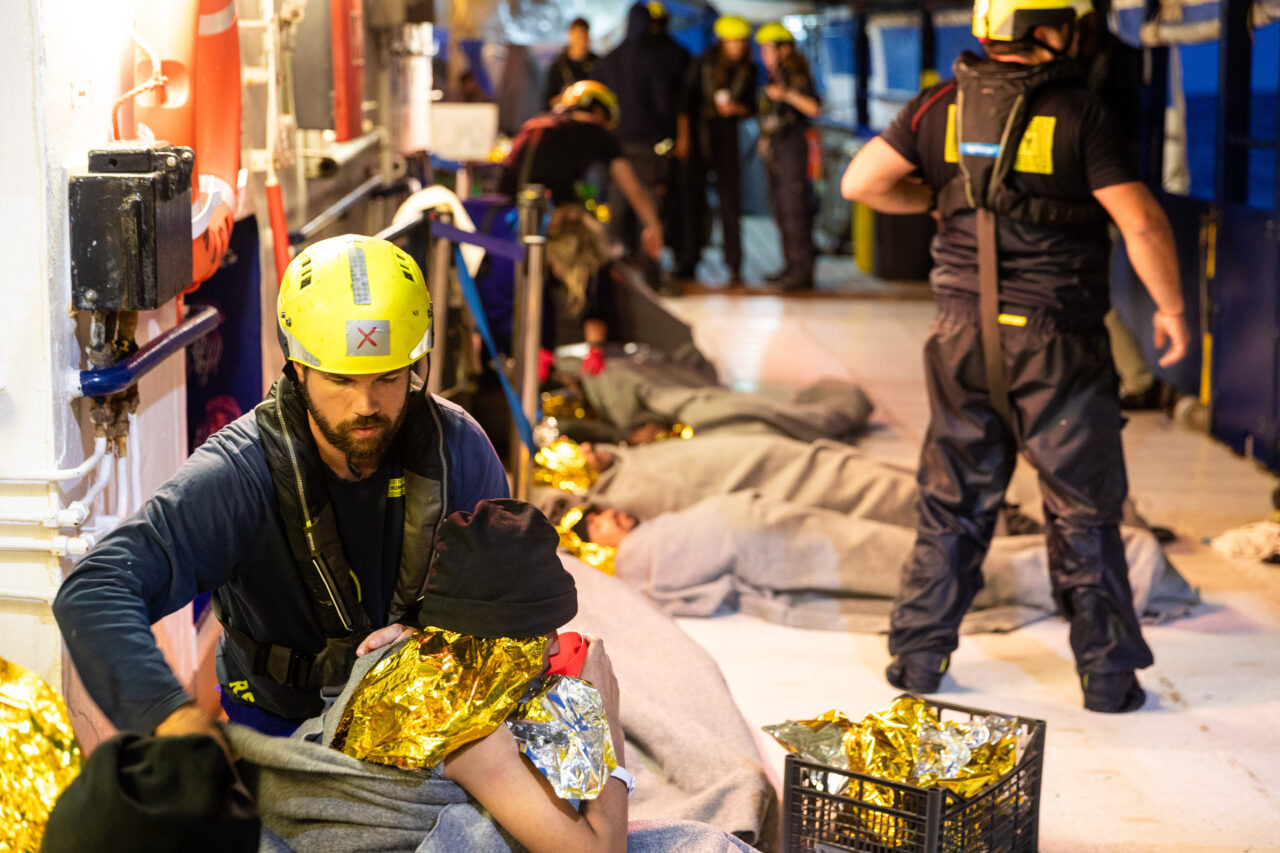
Because Europe’s closed-door policies encourage trafficking
Through their laws against trafficking, the EU and its member states are attempting to prevent migration to Europe, a goal that comes at a high expense to the livelihoods of refugees. Instead of being protected from exploitation, refugees and migrants are criminalised by EU states. Thousands of people forced to steer ferries are currently in detention in Italy and Greece for alleged ‘people smuggling’. In order to protect human lives effectively and prevent trafficking and people smuggling, safe and legal maritime routes to the EU are necessary.

Because Europe must take responsibility
The European Union and its member states are outsourcing asylum procedures and refugee protection in the central Mediterranean to third-party countries such as Tunisia, Libya and Albania. This includes soliciting support from the so-called Libyan and Tunisian Coast Guards, who engage in illegal repatriation and have committed various grave human rights violations. These externalisation policies are an abuse of taxpayers’ money, and will cost the EU around 290 million euros by 2027. Besides this, they are entirely ineffective and incompatible with European values and statues of both European and international law.

Because everyone has the right to protection
Those fleeing across the Mediterranean may be escaping armed conflict, persecution, torture and execution, or seeking a future with education, dignity and security – fundamental rights that are often permanently denied to them in countries of origin or transit. Under the Geneva Refugee Convention and the European Convention on Human Rights, everyone has the right to a fair asylum procedure under the rule of law, with individual assessment of their protection needs. This is why the blanket rejection of groups of people seeking protection without individual examination is illegal at any border.

Because saving lives is a duty
Since 2014, more than 30,000 people have drowned in the Mediterranean. Instead of ensuring compliance with maritime law and setting up an effective European search and rescue programme, the EU continues to close its doors. Its border protection agency, Frontex, does not consistently refer distress cases to search and rescue organisations, but rather to Libyan or Tunisian authorities, who arrange illegal and inhumane ‘pull-backs’. Non-governmental organisations such as SOS Humanity are the ones taking responsibility and saving lives, while the EU fails to fulfil its obligations to rescue people in distress and respect human rights.


